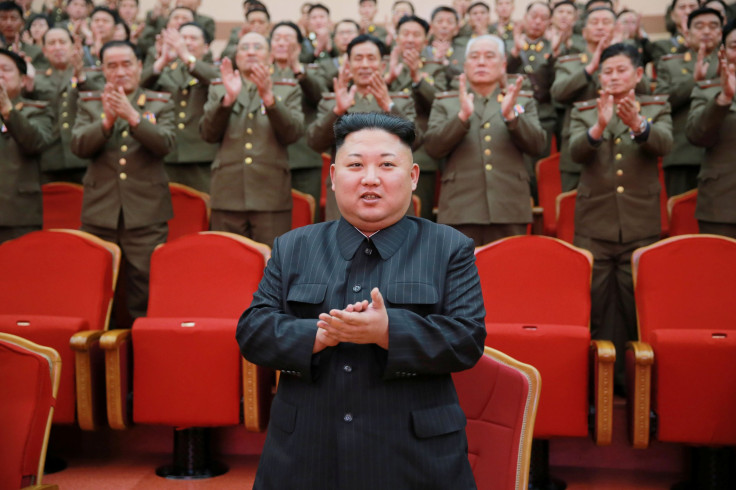Will North Korea Attack The US? Kim Jong Un's Nuclear Missile Program Driven By Fear, Insecurity, Russian Expert Says

North Korea's nuclear and ballistic weapons programs were designed to defend the country against foreign threats such as the U.S. and South Korea, not to wage war on hostile forces abroad, a Russian expert on North Korea told United Press International on Wednesday.
The tense situation on the Korean Peninsula between Pyongyang and its southern rival, Seoul, has remained a flashpoint in international relations since the two countries went to war in the early 1950s. While South Korea has enjoyed relatively enthusiastic backing from the U.S., North Korea's sponsor, China, has become increasingly reluctant over the years in its defense of the reclusive, authoritarian state, which is believed to have developed nuclear weapons. North Korean leader Kim Jong Un, like his father and grandfather before him, has often been depicted in Western media as an aberrant tyrant ready to attack at any time, but Alexander Zhebin of the Institute of Far Eastern Studies at the Russian Academy of Sciences in Moscow, challenged this view.
"Very often North Korea is seen as an unpredictable, irrational government," Zhebin told UPI at the annual Global Peace Convention in Manila. "But an irrational and unpredictable government would not be able to stay in power for 70 years."
Many Russians view Washington as the aggressor in the situation, Zhebin said. He maintained North Korea would "use everything" at its disposal to defend itself, but said Pyongyang was aware it could never hold out against a world power like the U.S. in a military conflict. He argued the dissonance of different views between U.S. administrations over the years and witnessing U.S. military interventions against Washington's adversaries in countries such as Iraq and Libya over the years had left the North Korean government "deeply frightened" and "insecure" in holding serious talks with the U.S.
Faces of #Pyongyang
— AFP Photo (@AFPphoto) February 24, 2017
Pictures taken in February 2017, North Korea. Photo @edwardesjones pic.twitter.com/cSAKxd3S7m
This paranoia reportedly only has increased since the election of President Donald Trump, another leader often described as "unpredictable" by media outlets. Trump initially said he would welcome talks with Kim and was once even called "a wise choice" for president by North Korean state-run media, but has since changed his tune. Secret talks between Washington and Pyongyang reportedly survived controversial heightened tensions earlier this year but were halted after the assassination of Kim Jong Un's half-brother, Kim Jong Nam, who was poisoned last month in a Malaysian airport by what U.S. and South Korean officials claim were operatives working for North Korea. Pyongyang has denied any involvement.
The pressure on Pyongyang has been exacerbated by a rare reproach from its biggest political and trade ally, China. Beijing blocked coal imports from neighboring North Korea last month after North Korea tested a potentially nuclear-capable ballistic missile. China has expressed opposition in the past to North Korea's nuclear weapons program and voted along with the U.S. to impose U.N. sanctions on Pyongyang as a result of its missile tests.
© Copyright IBTimes 2024. All rights reserved.






















